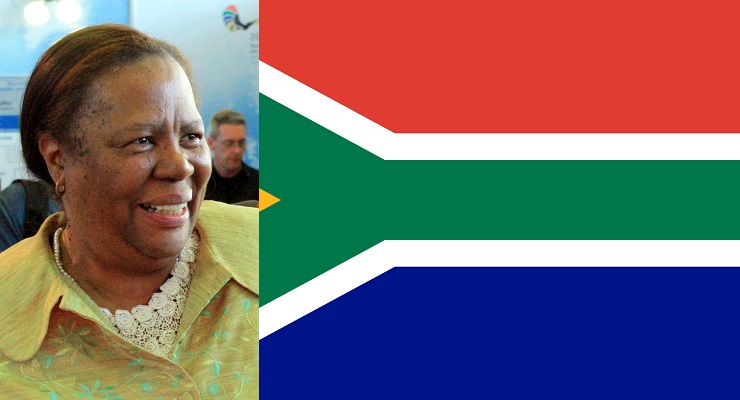
This story is from VOA:
South Africa’s International Relations Minister Naledi Pandor says President Cyril Ramaphosa’s special envoys to Zimbabwe are expected to engage all stakeholders as Catholic Bishops and Amnesty International express concern over alleged human rights abuses in the country.
In an interview with Radio 786, Pandor said the envoys – Baleka Mbete, Sydney Mufamadi and Ngoako Ramatladi – were initially expected to discuss the political situation in Zimbabwe with the ruling government, opposition parties and others last week when they visited the troubled nation.
Pandor said South Africa is concerned about refugees streaming into the country amid a crackdown in Zimbabwe on political opponents, especially people who organized the July 31 anti-corruption protest, which was thwarted by state security agents.
President Mnangagwa, who met with the special envoys last Monday, says “terrorists” and misguided Zimbabweans are attempting to unseat a constitutionally-elected government.
But Pandor told the radio station that the crisis in Zimbabwe needs urgent action as the current situation is affecting South Africa.
She is quoted as saying, “… We have to work with Zimbabwe in order to address that economic situation and find a way of helping to reverse the current situation so that the citizens of Zimbabwe can happily return to their country.
“… It is in South Africa’s interests, given our current economic situation, that we do continue to have discussions, keep a very dynamic link with Zimbabwe and assure their government that we are not seeking to interfere in their internal matters but we would like to work with them to find a solution that works with their current context.”
The Zimbabwean government recently attacked Lindiwe Zulu and Acie Magashule of the African National Congress for saying there is a political crisis in the country.
In a pastoral letter, Catholic bishops said, “Zimbabwe is in a “a multi-layered crisis of the convergence of economic collapse, deepening poverty, food insecurity, corruption and human rights abuses.
“… Fear runs down the spines of many of our people today. The crackdown on dissent is unprecedented … Our government automatically labels anyone thinking differently as an enemy of the country: that is an abuse.”
The pastoral letter, signed by ZCBC president Archbishop Charles Ndlovu, Archbishop Alex Thomas (ZCBC deputy president), and bishops Paul Horan (ZCBC secretary and treasurer), Michael Bhasera (Masvingo), Albert Serrano (Hwange), Rudolf Nyandoro (Gokwe) and Raymond Mupandasekwa (Chinhoyi).
Reacting to these sentiments, Information Minister Monica Mutsvangwa dismissed their remarks, saying they are ill-informed and designed to cause anarchy in Zimbabwe.
Mutsvangwa said, “The Government of Zimbabwe calls upon the Catholic congregation to ignore the specious pastoral letter. Bishop Christopher Ndlovu is leading a coterie of Zimbabwe Catholic Bishops along the wrong path of bygone petty tribalism, narrow regionalism and the debunked and defeated racial antagonism.
“Its evil message reeks with all the vices that have perennially hobbled the progress of Africa. It trumpets petty tribal feuds and narrow regionalist agendas … That he (Archbishop Ndlovu) hopes to sow seeds of internecine strife as a prelude to civil war and national disintegration.”
Several organizations, including the Zimbabwe Lawyers for Human Rights (ZLHR), have expressed support to the Catholic bishops, saying President Emmerson Mnangagwa’s government is engaged in serious human rights violations.
In a statement, the ZLHR said, “There can be no justification of this vilification of the clergymen and this anti-Catholic scorn because for the Bishops, speaking out against transgressions is their moral obligation.
“As ZLHR, we are greatly concerned that the intolerance of President Emmerson Mnangagwa’s government on dissent and criticism is becoming more despicable every passing day and we should realise that it is the manifestation of President Mnangagwa’s and his followers’ fear on the people’s legitimate dissatisfaction from a leader who claimed and promised to be a “listening” President which is equally growing. We have noted that in 2020 while the vilifiers and the vilified are different, the script is the same.”
The ZLHR further said, “The incendiary statements by government are aimed at inflicting shame on clergymen and to vilify their struggles that spring from righteous causes.”
Leave a Reply